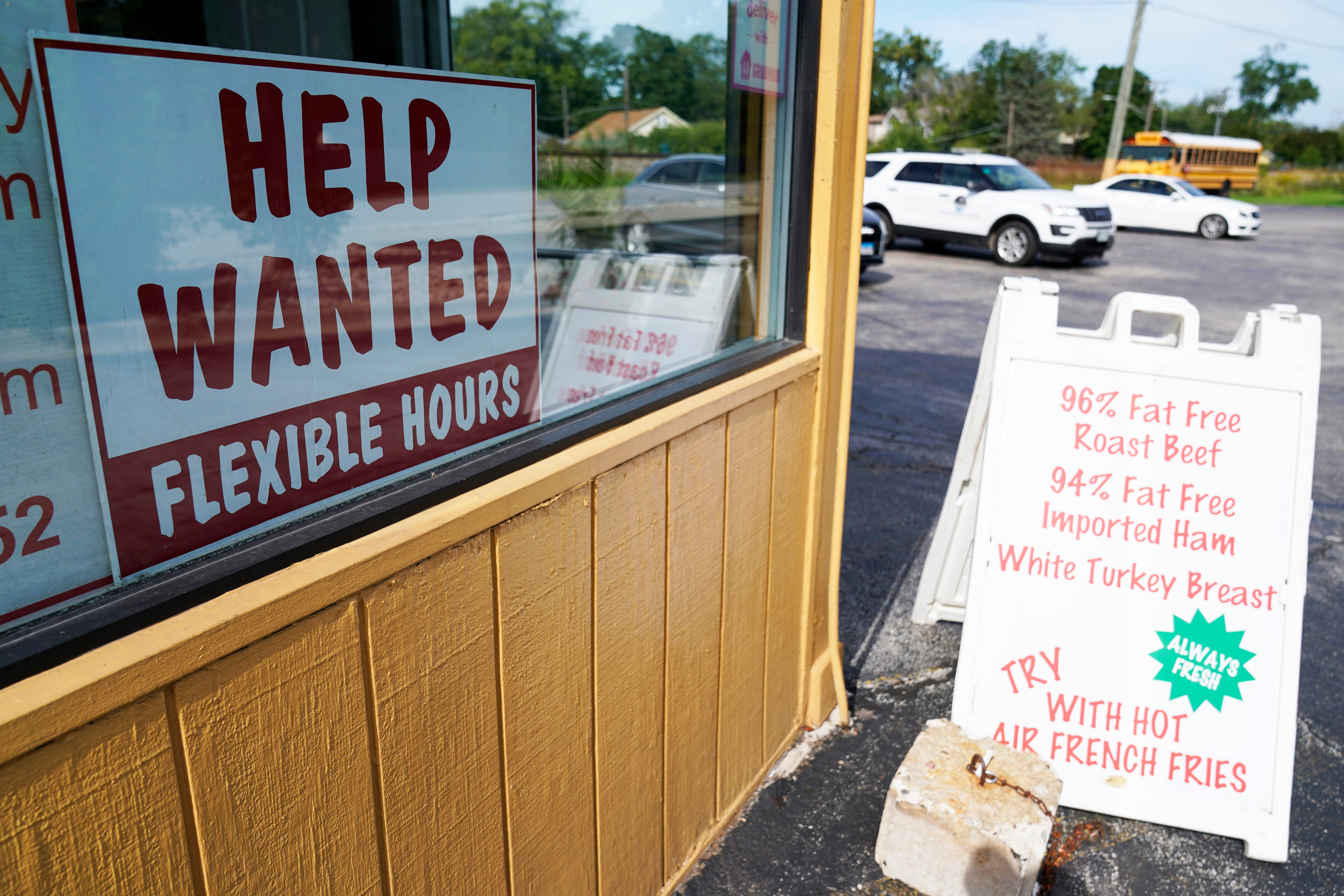U.S. applications for jobless aid rise last week
The number of Americans applying for unemployment benefits rose slightly last week but remains historically low even as the U.S. economy slows in the midst of decades-high inflation

Your support helps us to tell the story
From reproductive rights to climate change to Big Tech, The Independent is on the ground when the story is developing. Whether it's investigating the financials of Elon Musk's pro-Trump PAC or producing our latest documentary, 'The A Word', which shines a light on the American women fighting for reproductive rights, we know how important it is to parse out the facts from the messaging.
At such a critical moment in US history, we need reporters on the ground. Your donation allows us to keep sending journalists to speak to both sides of the story.
The Independent is trusted by Americans across the entire political spectrum. And unlike many other quality news outlets, we choose not to lock Americans out of our reporting and analysis with paywalls. We believe quality journalism should be available to everyone, paid for by those who can afford it.
Your support makes all the difference.The number of Americans applying for unemployment benefits rose slightly last week but remains historically low even as the U.S. economy slows in the midst of decades-high inflation.
Jobless claims for the week ending Oct. 8 rose by 9,000 to 228,000, the Labor Department reported Thursday.
The four-week moving average ticked up by 5,000 by to 211,500.
Considered a proxy for layoffs, applications for jobless aid have remained historically low since the initial purge of more than 20 million jobs at the start of the coronavirus pandemic in the spring of 2020.
Some recent employment data has indicated that the job market may be cooling slightly, but overall, it remains the healthiest part of an economy that's been wobbling since early this year.
The government reported Thursday that that inflation in the United States accelerated in September, with the cost of housing and other necessities intensifying pressure on families and businesses.
Four-decade high inflation has prompted the Federal Reserve to keep raising its key interest rate, which is currently in a range of 3% to 3.25%. A little more than six months ago, that rate was near zero. The sharp rate hikes have pushed mortgage rates up to 15-year highs, and made other borrowing costlier. The Fed hopes that higher interest rates will slow borrowing and spending and push inflation closer to its traditional 2% target.
Fed officials have warned that the unemployment rate will likely have to rise as part of their fight against rising prices, and last week's jobs report likely snuffed out any hope that the Fed would pause rate increases when it meets in early November.
American employers slowed their hiring in September but still added 263,000 jobs and the unemployment rate dropped from 3.7% to 3.5%, matching a half-century low.
The Fed is hoping that a slower pace of hiring would eventually mean less pressure on employers to raise pay and pass those costs on to their customers through price increases — a recipe for high inflation. But September’s job growth was likely too solid to sway the central bank’s inflation watchdogs.
The total number of Americans collecting unemployment aid ticked up by 3,000 to 1.37 million for the week ending Oct. 1.
Another government report early last week showed that the number of available jobs in the U.S. plummeted in August compared with July as businesses grow less desperate for workers, briefly encouraging investors and economists.
Earlier this month, the government reported that the U.S. economy shrank for the second straight quarter, but so far, that has done little to cool the job market, part of the Fed’s inflation-fighting strategy.